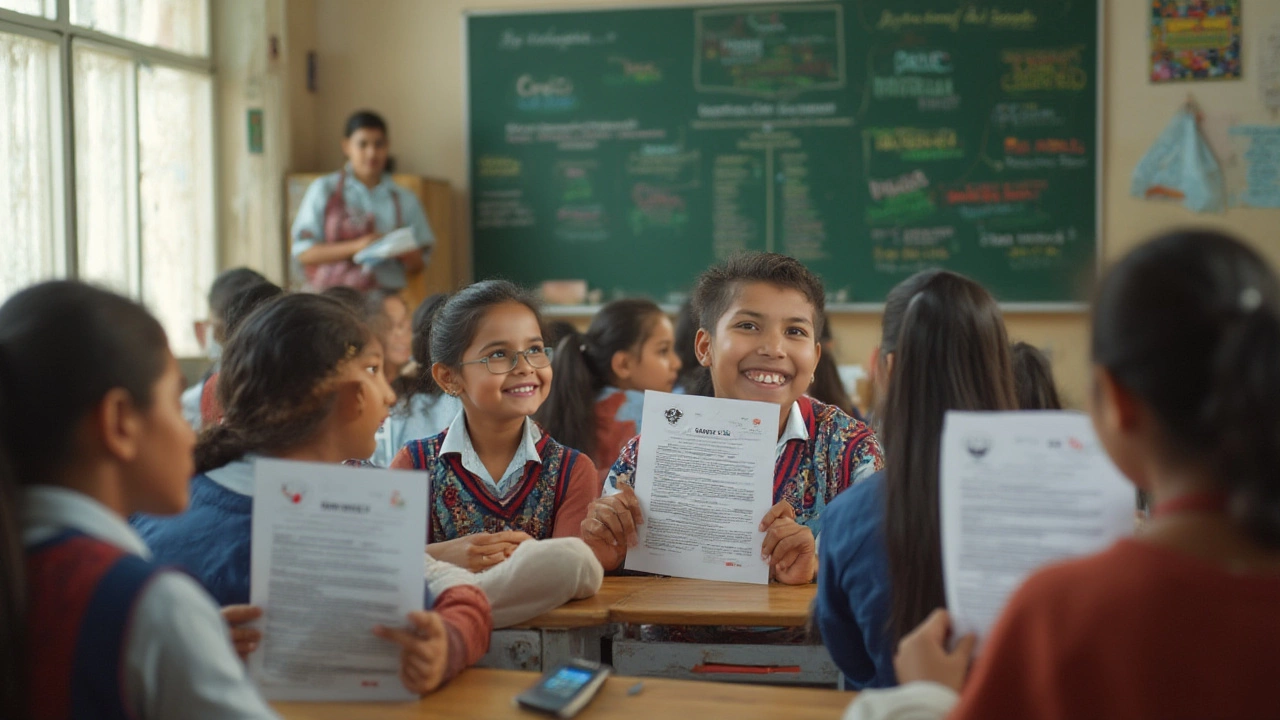Ever heard people argue over what the 12th class “degree” is called in India? Some call it Plus Two, others say Higher Secondary, and a few even say Intermediate. Yet, when job applications and college forms ask for your educational qualifications, the confusion just goes up another notch. If you’ve just finished school or are a parent scratching your head over all these terms, you’re not alone. Knowing what exactly the 12th standard qualification means makes things so much simpler, whether you’re facing entrance exams, applying to colleges, or just figuring out what paperwork you need for that dream job.
What’s the Official Name for 12th Class?
Let’s clear the air: In India, your “12th class degree” isn’t really a degree in the traditional sense. Instead, it’s a mark of completing secondary education: your Higher Secondary School certificate. The name varies by board and sometimes even by state, which probably explains why it can feel so frustratingly vague. Here’s the breakdown:
- Central Board of Secondary Education (CBSE): Here, the 12th class is officially called the 'Senior School Certificate' or 'All India Senior School Certificate Examination' (AISSCE).
- Council for the Indian School Certificate Examinations (CISCE): The exam at this level is known as the 'Indian School Certificate' (ISC).
- State Boards: Each one has its own name. In Uttar Pradesh, it’s “Intermediate”; in Maharashtra, it’s “Higher Secondary Certificate” (HSC); in Tamil Nadu, it’s “Higher Secondary Examination” (HSE); in Andhra Pradesh and Telangana, it is also commonly called “Intermediate.”
Here’s a quick look at the different names in a handy table:
| Board/State | Name of Certificate/Qualification |
|---|---|
| CBSE | Senior School Certificate (AISSCE) |
| CISCE | Indian School Certificate (ISC) |
| Maharashtra Board | Higher Secondary Certificate (HSC) |
| Tamil Nadu Board | Higher Secondary Examination (HSE) |
| UP Board, Bihar Board | Intermediate |
| Andhra Pradesh, Telangana | Intermediate |
So if you’re filling a college or job application and you’re asked for your “12th class degree,” chances are they mean your Higher Secondary Certificate, Senior School Certificate, or whatever your specific board names it. There’s no degree at the school level in India—the real degrees come after college or university.
Why So Many Names? Decoding the Confusion among Boards and States
If you’re wondering why these names change so much, well, blame India’s educational diversity. With more than 30 boards across states and national boards, everyone’s got their naming habits. The Ministry of Education let states design their own high school and intermediate education systems. States like Kerala and West Bengal prefer “Higher Secondary,” while UP and Bihar continue with “Intermediate.”
The reality is, this difference in names rarely affects your prospects. Employers and colleges only care that you’ve finished class 12 from a recognized board. The Central Board (CBSE) and the Council (CISCE) set the bar for nationwide recognition. The CBSE Senior School Certificate and ISC are accepted everywhere in India, even by international institutions. State boards sometimes face hesitation outside their home state, but in most cases, it’s just a matter of providing proper documentation—and sometimes, an English translation for certificates in regional languages.
One fun fact: The term “PUC” (Pre-University Course/Certificate) is popular in Karnataka. So, a student there will say “Passed Second PUC” instead of “12th.” Schools in places like Nagaland and Meghalaya often still use the old British-style “Higher Secondary Leaving Certificate.” This can catch people off guard, especially if you move between states. If you’re moving for college or want to apply out of your home state, remember to mention the full name as it appears on your mark sheet, and explain the board, if necessary.
CBSE, with around 25,000 schools, and State Boards, with more than 50 million students every year, all follow the pattern: 10+2 years of schooling. No matter the name, the certificate acts as proof that you’ve completed this crucial stage.
It’s interesting that some universities and competitive exams still use “HSC” or “12th pass” interchangeably. When they ask for your educational qualification, they want your mark sheet and certificate from this level—no matter what it’s called in your state. It often comes down to punchy acronyms because, let’s face it, “Senior School Certificate Examination” is a mouthful!

What Happens After 12th: Popular Streams, Exam Boards, and Courses
So you’ve got that precious 12th class pass certificate—now what? This is the big jumping-off point in the Indian education system. Your choice of stream back in class 11—Science, Commerce, or Arts/Humanities—plays a huge role in what higher education and career options you’ll have later.
Let’s break down the common streams:
- Science: This opens doors to engineering (B.Tech, BE), medicine (MBBS, BDS, BVSc), basic sciences (BSc), pharmacy, and research. You probably took Physics, Chemistry, Maths, or Biology.
- Commerce: If you imagined yourself as an accountant, banker, or entrepreneur, Commerce is your domain. Popular choices are B.Com, BBA, CA, CS, CMA, and management programs.
- Arts/Humanities: Those who love languages, history, or social sciences end up here. You can go for BA, BPA, BFA, civil services preparation, or media and journalism courses.
Did you know? Around 45% of students in India pick Science, 35% go for Commerce, and the rest opt for Arts/Humanities, according to a report by the Ministry of Education. This split has a big impact on the popularity of certain courses and even how entrance exams are set up. Competitive exams like JEE Main, NEET, or CLAT depend heavily on your choices in high school. So, “What next?” is a question that starts much before you even take your board exams.
Every university and college in India, whether it’s IITs, NITs, Delhi University, Mumbai University, or private colleges, asks you to submit your 12th pass marks for admissions. Many scholarships—even those offered by the central government—use your board exam score as a first filter. The same goes for most government jobs, where the eligibility is “12th pass” or “higher secondary pass.”
The crazy part: If you want to study abroad, most countries count your 12th class as their “high school diploma,” which makes your certificate super important. For example, the US, UK, Canada, and Australia accept Indian board certificates, provided you have certified translations and the right grades.
Tips to Remember About 12th Class Certificates in India
When it comes to documentation, people often get caught up in the different names and miss deadlines or provide the wrong papers. Here are some practical tips to keep in mind while navigating the maze of Indian school certificates:
- Always keep extra copies: After you get your board results, make at least eight to ten photocopies of your mark sheet and certificate. You’ll need them for every application—college, competitive exams, scholarships—and sometimes even for internships.
- Use the official board name: Whether it’s AISSCE for CBSE, ISC for CISCE, HSC, or Intermediate, always write exactly what’s printed on your certificate while filling in application forms. Mismatched details can cost you a seat or a job.
- If you’re applying outside your state or abroad, consider getting your certificates attested and, if necessary, translated into English.
- Don’t call it a “degree” on official forms—use “Higher Secondary Certificate,” “Senior School Certificate,” or “Class 12 Pass,” depending on your board. Only college-level and university-level qualifications (like Bachelor’s and Master’s) are considered true degrees in India.
- Lost your certificate? Contact your school or board office for a duplicate as soon as possible. Almost all boards now offer online services or clear directions for getting a duplicate certificate.
Here’s a quick recap table to put this all together for you:
| After 12th Pass: What Comes Next? | Examples |
|---|---|
| Popular Degree Courses | B.A., B.Com, B.Sc, B.Tech, MBBS, BBA, etc. |
| Entrance Exams | JEE Main, NEET, CLAT, CA Foundation, SAT (for abroad), etc. |
| Eligibility for Jobs | Bank Clerk, NDA, Railway jobs, SSC (CHSL), etc. |
| Scholarships | INSPIRE, National Scholarship Portal, State-level schemes, etc. |
The school graduation certificate (class 12) is really your golden ticket. Use it wisely, keep it safe, and if you’re ever unsure about what your certificate is called, just pull it out and check the exact words printed by your board. That simple step can save a lot of headaches down the road. No need to stress over what to call your 12th class credential—the 12th class degree India is a myth! It’s your Higher Secondary qualification, and it’s recognized across the country, no matter what you call it in your hometown.
